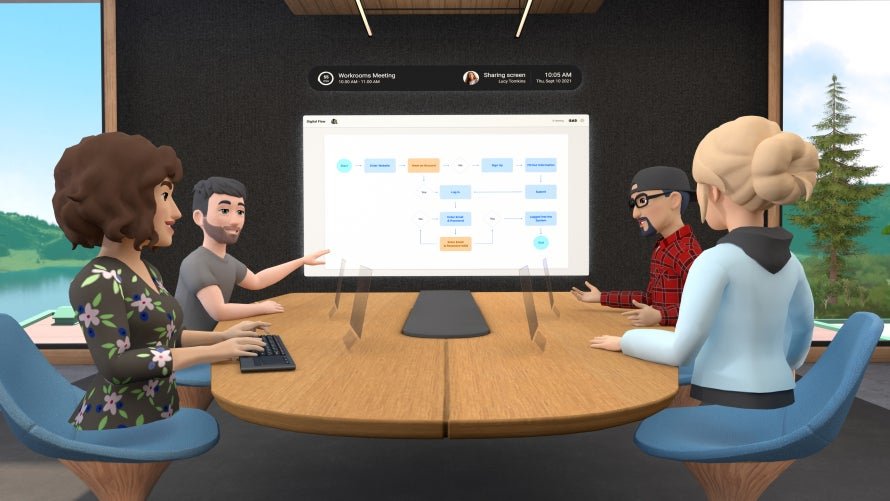Working remotely has become the new norm for many professionals, blurring the lines between our personal and professional lives. As we adapt to this flexible work arrangement, it is crucial to prioritize our physical well-being by creating a healthy workspace. While the allure of working from the comfort of our homes is undeniable, it is essential to remember that a poorly designed remote workspace can lead to a host of ergonomic issues. From backaches to eye strain, neglecting ergonomics can have a detrimental impact on our productivity and overall health. In this article, we will explore the importance of setting up a healthy workspace for remote work and delve into practical tips to ensure optimal ergonomics. So, let’s embark on a journey to transform our remote workstations into havens of comfort and productivity.
Table of Contents
- Creating a Comfortable and Productive Remote Workspace
- Optimizing Ergonomics for Remote Work
- Choosing the Right Furniture and Equipment for a Healthy Workspace
- Setting Up an Ergonomic Workstation at Home
- Implementing Healthy Habits for Remote Work Success
- Q&A
- Concluding Remarks

Creating a Comfortable and Productive Remote Workspace
Designing a remote workspace that promotes both comfort and productivity is essential for individuals who work from home. Here are some key tips to help you create an environment that maximizes your efficiency and well-being:
- Ergonomic Furniture: Invest in a comfortable chair and an adjustable desk that allows you to maintain proper posture. This will help prevent back pain and improve your focus.
- Natural Lighting: Position your workspace near a window to take advantage of natural light. Sunlight not only boosts your mood but also reduces eye strain caused by artificial lighting.
- Organizational Systems: Keep your workspace clutter-free by implementing effective organizational systems. Use storage solutions like shelves, drawers, and file organizers to maintain a tidy and efficient work area.
- Personal Touches: Add personal touches to your workspace to make it feel more inviting and inspiring. Decorate with plants, artwork, or motivational quotes that resonate with you.
- Technology Setup: Ensure your remote workspace is equipped with reliable and up-to-date technology. This includes a fast internet connection, a high-quality monitor, and a comfortable keyboard and mouse.
- Distraction-Free Zone: Minimize distractions by setting boundaries with family members or roommates. Consider using noise-canceling headphones or playing soft background music to help you stay focused.
By implementing these strategies, you can create a remote workspace that not only enhances your productivity but also provides a comfortable and enjoyable environment for your work-from-home experience.

Optimizing Ergonomics for Remote Work
When it comes to remote work, creating an ergonomic workspace is crucial for maintaining productivity and preventing discomfort or injuries. Here are some tips to optimize ergonomics and ensure a comfortable and efficient remote work environment:
- Invest in a proper chair: Choose a chair that provides adequate support for your back and promotes good posture. Consider adjustable features such as height, armrests, and lumbar support.
- Set up your desk correctly: Position your desk at the right height to avoid straining your neck and shoulders. Ensure that your wrists are in a neutral position while typing, and use a wrist rest if needed.
- Arrange your monitor: Position your monitor at eye level to reduce strain on your neck. Use a monitor stand or adjust the height accordingly. Additionally, adjust the brightness and contrast settings to minimize eye fatigue.
- Create a designated workspace: Dedicate a specific area in your home for work to establish a clear boundary between work and personal life. This will help you mentally switch into work mode and maintain focus.
- Take regular breaks: Avoid sitting for prolonged periods by incorporating short breaks into your routine. Stand up, stretch, and move around to improve blood circulation and reduce muscle tension.
By implementing these ergonomic practices, you can enhance your remote work experience, promote better health, and increase overall productivity. Remember, a comfortable and well-designed workspace is essential for long-term success in remote work.

Choosing the Right Furniture and Equipment for a Healthy Workspace
Creating a healthy workspace is essential for productivity and overall well-being. When it comes to choosing the right furniture and equipment, there are several factors to consider that can greatly impact your comfort and health.
Furniture:
- Ergonomic Chairs: Invest in a chair that provides proper support for your back and promotes good posture. Look for adjustable features such as height, armrests, and lumbar support.
- Height-Adjustable Desks: Consider a desk that allows you to switch between sitting and standing positions. This can help reduce the risk of sedentary behavior and improve circulation.
- Organizational Storage: Keep your workspace clutter-free with storage solutions like filing cabinets, shelves, and desk organizers. A tidy environment promotes focus and reduces stress.
Equipment:
- Ergonomic Keyboard and Mouse: Opt for keyboards and mice that are designed to minimize strain on your wrists and hands. Look for features like wrist rests and adjustable angles.
- Monitor Stands: Position your monitor at eye level to prevent neck and eye strain. Stands or adjustable arms can help achieve the optimal viewing height.
- Task Lighting: Ensure proper lighting to reduce eye fatigue and headaches. Consider adding a desk lamp with adjustable brightness or natural light bulbs.
Remember, everyone’s needs may vary, so take the time to assess your own requirements and preferences. By selecting furniture and equipment that prioritize your comfort and well-being, you can create a workspace that promotes productivity and supports a healthy lifestyle.
Setting Up an Ergonomic Workstation at Home
Creating an ergonomic workstation at home is essential for maintaining a healthy and comfortable work environment. By following a few simple guidelines, you can optimize your workspace to reduce strain on your body and enhance productivity. Here are some tips to help you set up an ergonomic workstation:
- Choose the right chair: Invest in a chair that provides proper lumbar support and is adjustable in height. This will help maintain a good posture and prevent back pain.
- Position your monitor: Place your monitor directly in front of you at eye level. Adjust the screen brightness and font size to reduce eye strain.
- Use a keyboard and mouse: Opt for an ergonomic keyboard and mouse that allow your wrists to remain in a neutral position. Consider using a wrist rest for added support.
- Organize your desk: Keep frequently used items within easy reach to minimize unnecessary stretching or reaching. Use desk organizers to declutter and create a clean workspace.
- Take regular breaks: Remember to take short breaks every hour to stretch and relax your muscles. Incorporate simple exercises like neck rolls and shoulder shrugs to relieve tension.
By implementing these ergonomic principles, you can create a comfortable and efficient workstation that promotes overall well-being and productivity. Remember, a healthy work environment is crucial for long-term success and happiness.
Implementing Healthy Habits for Remote Work Success
Working remotely offers flexibility and convenience, but it also comes with its own set of challenges. To ensure success in your remote work journey, it is crucial to establish healthy habits that promote productivity, well-being, and work-life balance. Here are some effective strategies to implement:
- Create a dedicated workspace: Designate a specific area in your home solely for work. This will help you mentally separate your professional and personal life, allowing for better focus and concentration.
- Establish a routine: Set a consistent schedule that aligns with your natural energy levels and work preferences. Having a structured routine will enhance productivity and prevent burnout.
- Take regular breaks: It’s easy to get absorbed in work when you’re in the comfort of your own home. Remember to take short breaks throughout the day to stretch, move around, and give your mind a chance to recharge.
- Stay connected: Remote work can sometimes feel isolating, so make an effort to stay connected with colleagues. Utilize video calls, instant messaging, and virtual team-building activities to foster collaboration and maintain a sense of camaraderie.
- Practice self-care: Prioritize your physical and mental well-being by incorporating self-care activities into your daily routine. Exercise regularly, eat nutritious meals, get enough sleep, and engage in activities that bring you joy and relaxation.
By implementing these healthy habits, you can optimize your remote work experience and achieve a harmonious balance between your professional and personal life. Remember, remote work success is not just about productivity, but also about taking care of yourself and maintaining a healthy work-life integration.
Q&A
Why is it important to set up a healthy workspace when working remotely?
Creating a healthy workspace is crucial when working remotely to prevent musculoskeletal disorders, improve productivity, and maintain overall well-being.
What are some key ergonomic considerations for setting up a remote workspace?
Some key ergonomic considerations include having an adjustable chair and desk, positioning the monitor at eye level, using a separate keyboard and mouse, and ensuring proper lighting.
How can I choose the right chair for my remote workspace?
When choosing a chair, opt for one that provides lumbar support, has adjustable height and armrests, and promotes good posture. Test it out before purchasing to ensure it suits your body type and preferences.
What is the ideal desk height for a remote workspace?
The ideal desk height is typically around elbow height when sitting. Adjust the desk height accordingly or use an adjustable desk to maintain proper posture and prevent strain on your wrists and back.
How should I position my monitor for optimal ergonomics?
Position your monitor at eye level, about an arm’s length away from you. This helps reduce strain on your neck and eyes, promoting better posture and preventing discomfort.
Why is it important to use a separate keyboard and mouse?
Using a separate keyboard and mouse allows you to position them at the most comfortable and ergonomic distance and angle for your wrists and arms, reducing the risk of repetitive strain injuries.
What role does lighting play in creating a healthy workspace?
Proper lighting is essential for reducing eye strain and preventing headaches. Ensure that your workspace is well-lit, preferably with natural light, and avoid glare on your computer screen.
How often should I take breaks when working remotely?
Taking regular breaks is crucial when working remotely to prevent prolonged sitting and eye strain. Aim for a 5-10 minute break every hour to stretch, move around, and rest your eyes.
What are some exercises I can do to combat the negative effects of remote work on my body?
Some exercises to combat the negative effects of remote work include stretching your neck, shoulders, and wrists, doing back and core strengthening exercises, and incorporating regular physical activity into your routine.
Are there any other tips for maintaining a healthy remote workspace?
Other tips include maintaining good posture, staying hydrated, using a headset or speakerphone for calls, organizing your workspace to minimize clutter, and creating a designated area solely for work to separate it from your personal life.
Concluding Remarks
As we bid adieu to this exploration of remote work and ergonomics, we hope you have found inspiration to create a healthy and harmonious workspace that nurtures both your body and mind. Remember, the key to unlocking productivity and well-being lies in the careful curation of your surroundings.
As you embark on this journey, let your imagination run wild, for the possibilities are endless. Picture yourself nestled in a cozy corner, surrounded by plants that breathe life into your space. Envision a desk that seamlessly merges functionality with elegance, where your hands dance effortlessly across the keyboard. Visualize a chair that embraces you like a warm hug, supporting your back and encouraging good posture.
But let us not forget the importance of movement. Incorporate moments of stretching and exercise into your daily routine, allowing your body to rejuvenate and your mind to refocus. Take breaks to gaze out the window, letting your eyes wander into the vast expanse of nature, even if it’s just a potted plant on your windowsill.
In this digital age, where the boundaries between work and personal life blur, it becomes imperative to establish a sanctuary that fosters balance. Create a space that reflects your personality, where inspiration flows freely and creativity knows no bounds. Surround yourself with objects that bring you joy, whether it be a cherished photograph or a quirky trinket that sparks conversation.
As you embark on this journey of remote work and ergonomics, remember that it is not just about the physical setup, but also about the mindset you bring to the table. Cultivate a sense of mindfulness and intentionality in your work, allowing each task to be an opportunity for growth and self-discovery.
So, dear reader, as you venture forth into the realm of remote work, armed with the knowledge of ergonomics, may you find solace in the embrace of a healthy workspace. May your days be filled with productivity, creativity, and a sense of well-being. And may your journey be a testament to the power of design and intention in shaping our lives.
As an affiliate, my content may feature links to products I personally use and recommend. By taking action, like subscribing or making a purchase, you’ll be supporting my work and fueling my taco cravings at the same time. Win-win, right?
Want to read more? Check out our Affiliate Disclosure page.